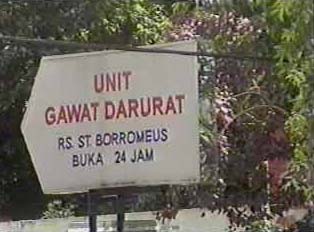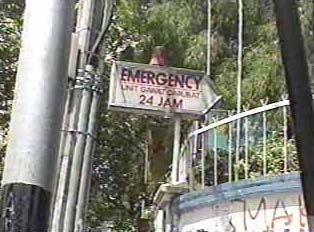LangMedia
Indonesian in Indonesia
Emergencies

For medical emergencies contact the nearest hospital. Most hospitals have emergency services and may also operate their own ambulance service. If a car is available, family members or neighbors will often take a sick or injured person to the hospital rather than using an ambulance. Indonesia has both public and private hospitals. Public hospitals are cheaper, but more crowded. Private hospitals offer less-crowded conditions and thus better service, but are more expensive. For less urgent care, simply go to a hospital or clinic without an appointment, register at the desk, and then wait until called. A few exclusive private clinics may make appointments. People must be prepared to pay cash for emergency or other health services at the time of service. Normally there are no billing or insurance arrangements.
For cases of theft, traffic accident, or personal injury, people generally call the police for major incidents, but will handle minor incidents through private negotiations and informal channels. Cities and towns will have firefighters, but it is customary for neighbors and anyone else nearby to start helping to fight a fire, even if local firefighters have been called. More remote areas may not have firefighters and then the burden of fire fighting falls on everyone in the neighborhood who can help out, especially by hauling buckets of water to the fire location.
Audio
Click on the text to hear the spoken phrase.
-
"Help!"
Tolong! -
"I'm sick."
Saya sakit. -
"Police"
Polisi -
"Fire!"
Api!
Images
-
 Sign for the emergency unit at St. Borromeus Hospital, open 24 hours
Sign for the emergency unit at St. Borromeus Hospital, open 24 hours -
 Sign showing the way to the emergency unit
Sign showing the way to the emergency unit
